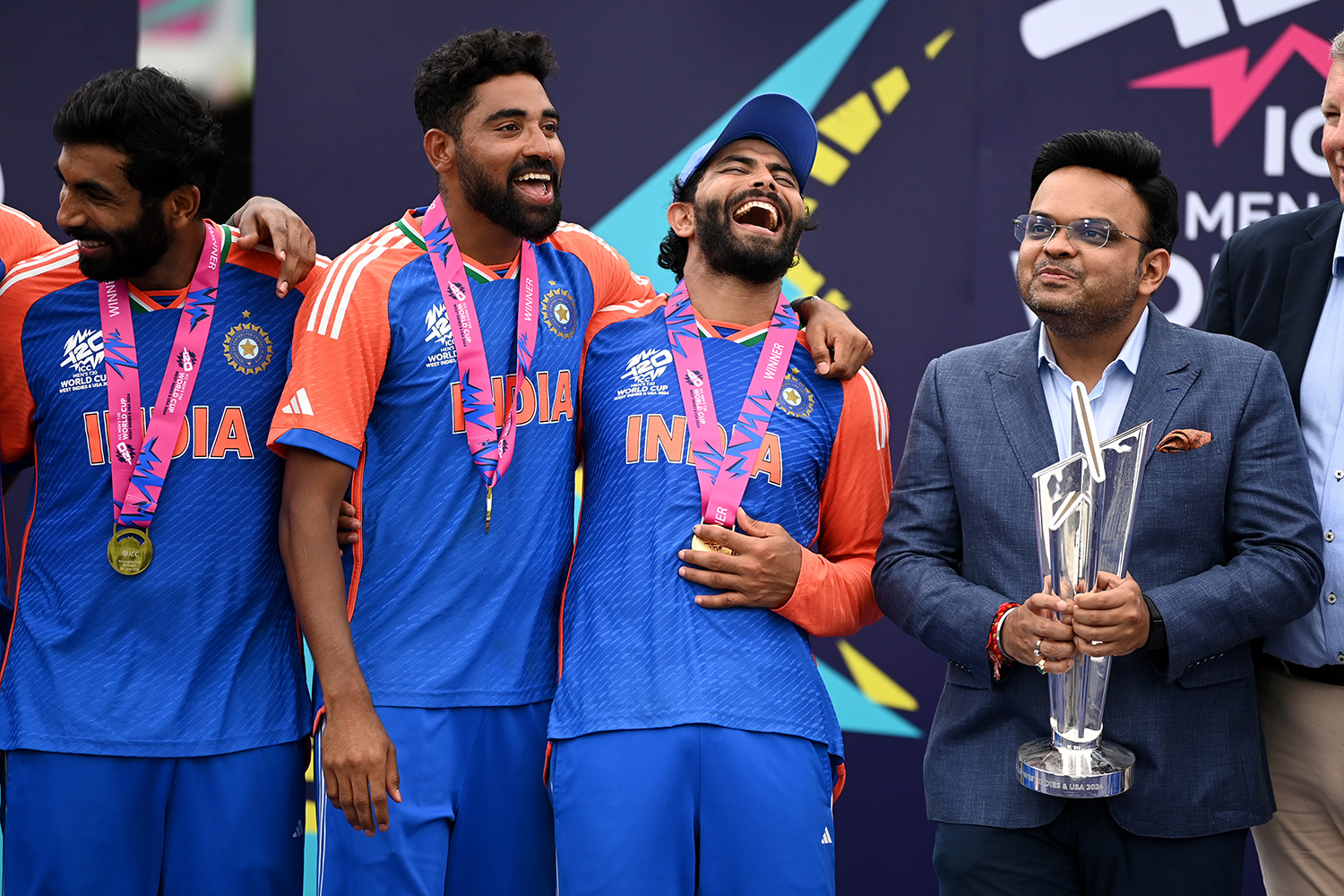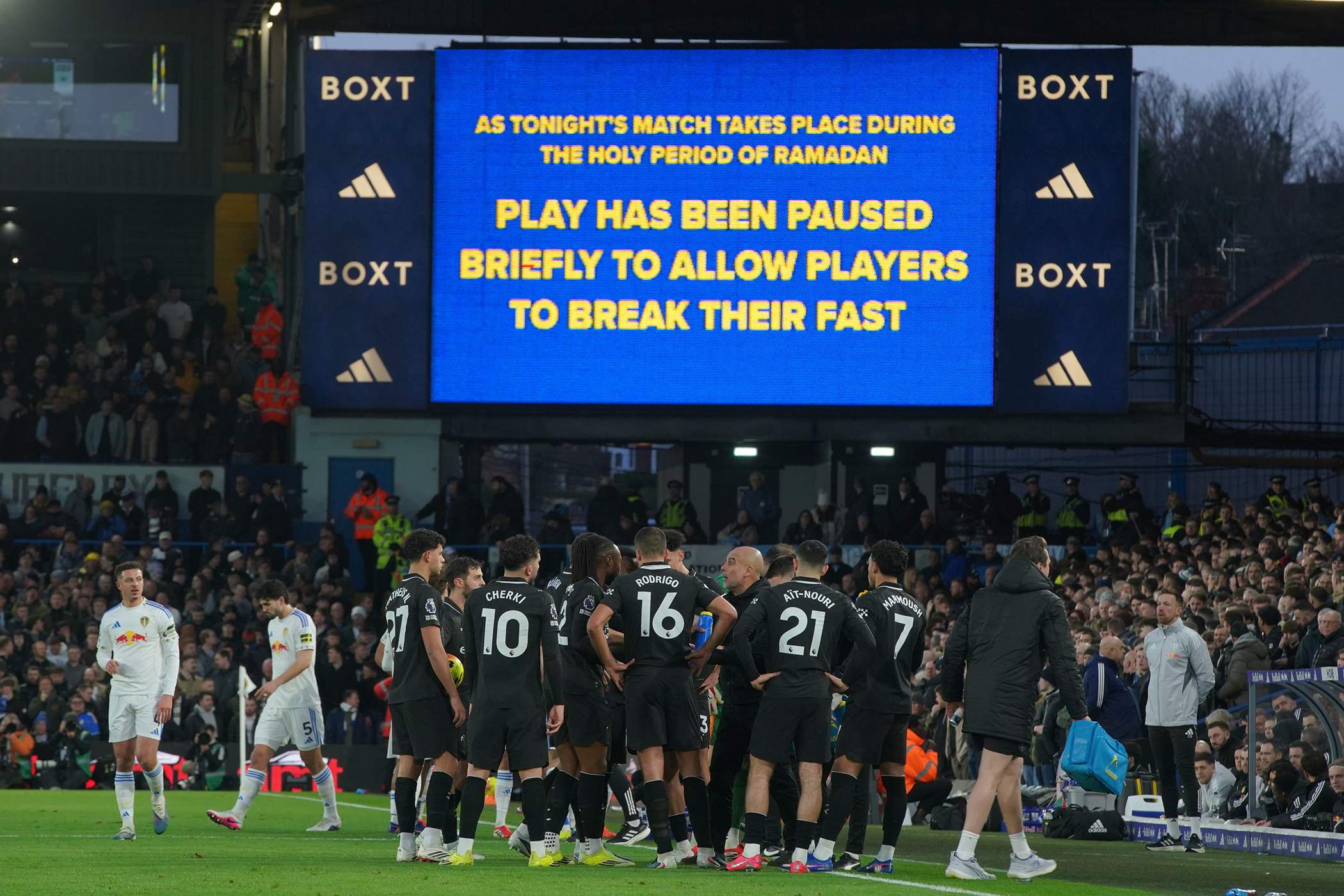Jay Shah is the midnight’s child of Indian cricket. “At the stroke of the midnight hour, when the world sleeps, India will awake…” said Nehru at independence in August 1947. At the stroke of the midnight hour on 30 November 2024, Jay Shah passed unopposed and unelected, from the position of honorary secretary of the Board of Control for Cricket in India (BCCI) to the chair of the International Cricket Council (ICC), the game’s global governing body.
The political Big Three in cricket usually means the triumvirate of India, England and Australia. The precocious ascent of Shah, elevated to cricket’s most powerful position at the tender age of 35, means there is a new Big Three: Shah, his father Amit, India’s home minister and chief strategist for the BJP government, and Prime Minister Narendra Modi himself.
Shah father and son once ran the Cricket Association in Modi’s political base of Gujarat. Their legacy was a huge stadium in Ahmedabad which is called – what else? – the Narendra Modi stadium.
The last thing the fractious politics of cricket needs is to be overlaid with the fractious politics of India, because the connection is already worrying. Under the guidance of Jay Shah at the BCCI and under pressure from the BJP government, India refused to send a team to Pakistan last February for the ICC’s Champions Trophy.
It tells you where the power lies in cricket that the tournament was hastily rearranged to accommodate India by moving their games to the Gulf three years after everyone –the BCCI included – had agreed the schedule.
‘2024 was the year cricket gave up any claim to being properly administered’
‘2024 was the year cricket gave up any claim to being properly administered’
Wisden editor Lawrence Booth
Any serious governing body would have told India to turn up and play in Pakistan or withdraw. Instead, the ICC caved in, and teams had to take a flight across the Gulf of Oman for the privilege of being beaten by India. As the editor of Wisden, Lawrence Booth, rightly says in his excellent notes in the latest edition of the almanack, “2024 was the year cricket gave up any claim to being properly administered”.
It is open to Jay Shah to confound this judgment. Maybe the concentration of power could even have salutary effects. Maybe Shah at the ICC will be a sort of Nixon in China, the man who is a more credible reformer precisely because he once appeared so hardline. It is going to be tough, though. The agenda for Shah’s time in office – which will probably run the full six-year span – is full of intractable problems.
The international schedule is a colossal mess as cricket authorities everywhere chase the revenue generated by the 53 franchise leagues that have sprung up.
We end up with the absurdity of a County Championship in April and September and minimal Test cricket in August. Ravi Shastri, the former Indian batsman and off-spinner, has raised again the prospect of two leagues for Test cricket, although the next cycle of the World Test Championship, which opens with England’s series against India this summer, will remain a single league. Radical change has been put off until 2027 at the earliest.
Yet whatever the merits of two-tier Test cricket, it is hard to see why that solves the actual problem at hand.
Newsletters
Choose the newsletters you want to receive
View more
For information about how The Observer protects your data, read our Privacy Policy
The blunt truth is there isn’t enough money in Test cricket. Not enough people attending, too much time taken up. Most countries make a loss on hosting a series. The way the ICC distributes money exacerbates the problem. India, England and Australia, who don’t need the money, get more than 50 per cent between them.
At the BCCI, Jay Shah supported Cricket Australia’s suggestion that the ICC establish a $15 million fund for Test cricket. It’s the right idea, but the wrong number. Test cricket needs a lot more than that.
Every franchise should pay a licence fee that goes to Test-playing nations. Unless something like this happens, England, Australia and India will play each other, in a recurring series, for ever.
Jay Shah could follow the example of his father, a political strategist. When Amit Shah worked with Modi to eliminate the Congress party in rural Gujarat, he recruited the second-most influential leader in every village, the one who had lost out in local elections. Amit Shah created the network of the discontented and that is now Jay Shah’s task too.
Photo credit: Gareth Copley/Getty Images



